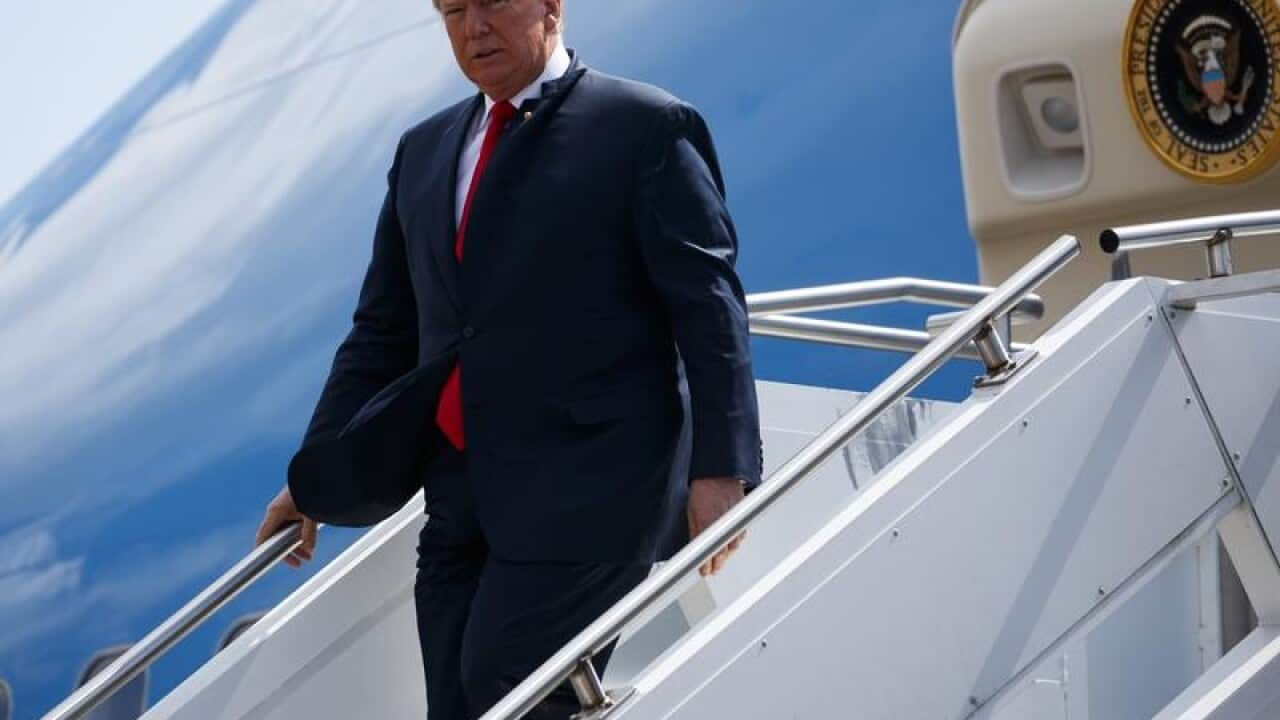US President Donald Trump has told Canada and the European Union to do more to bring down their trade surpluses, a day after hitting the two US allies and Mexico with import tariffs on their steel and aluminium.
Trump castigated Canada in a tweet on Friday morning, saying it had treated US farmers "very poorly for a very long period of time".
"Highly restrictive on Trade! They must open their markets and take down their trade barriers! They report a really high surplus on trade with us," he wrote.
He also told French President Emmanuel Macron of the need to "rebalance trade with Europe", the White House said.
His strong words followed swift responses to his tariffs by Canada, Mexico and the European Union, which all plan to retaliate with levies on billions of dollars of US goods from orange juice and whiskey to blue jeans and Harley-Davidsons.
The EU took the US to the World Trade Organisation to challenge the legality of the new tariffs and the Trump administration's national security justification. Brussels has lodged an eight-page list at the international trade body of goods it would hit with retaliatory measures.
"We are determined to protect the multilateral system," EU Trade Commissioner Cecilia Malmstrom said of the WTO challenge. "We are expecting everybody to play by the rules."
Trump's tariffs on Washington's closest allies also drew condemnation at home from Republican lawmakers and the country's main business lobbying group and sent a chill through financial markets on Thursday.
Tariffs of 25 per cent on steel imports and 10 per cent on aluminium were imposed on the EU, Canada and Mexico from midnight in Washington.
"We look forward to continued negotiations, both with Canada and Mexico on the one hand, and with the European Commission on the other hand, because there are other issues that we also need to get resolved," US Commerce Secretary Wilbur Ross said.
But the EU's Malmstrom said there would be no such wider trade talks as long as the US measures were in place.
"We were not at the negotiating table. Our offer was: 'You take this gun away from us, we sit together as friends and equals and we discuss,' and this would eventually lead to negotiations," Malmstrom told a news conference in Brussels. "We never got this. So now this door for the moment is closed."
While the US administration's decision to hit its European and North American allies with the metals tariffs was not aimed directly at China, it also sets the background for negotiations with Beijing, where Ross was headed on Friday for talks.
The Trump administration wants China to buy more US goods to lower a trade deficit. Opponents of the tariffs on European and North American metals say the administration is hurting allies when it needs them most to put pressure on Beijing.
Malmstrom said over-production from China, not Europe, was to blame for the glut of steel that prompted the US action. She also announced a case against China at the WTO over the alleged infringement of intellectual property rights, saying the action simultaneous with the case against the US showed that the EU was being even-handed.

